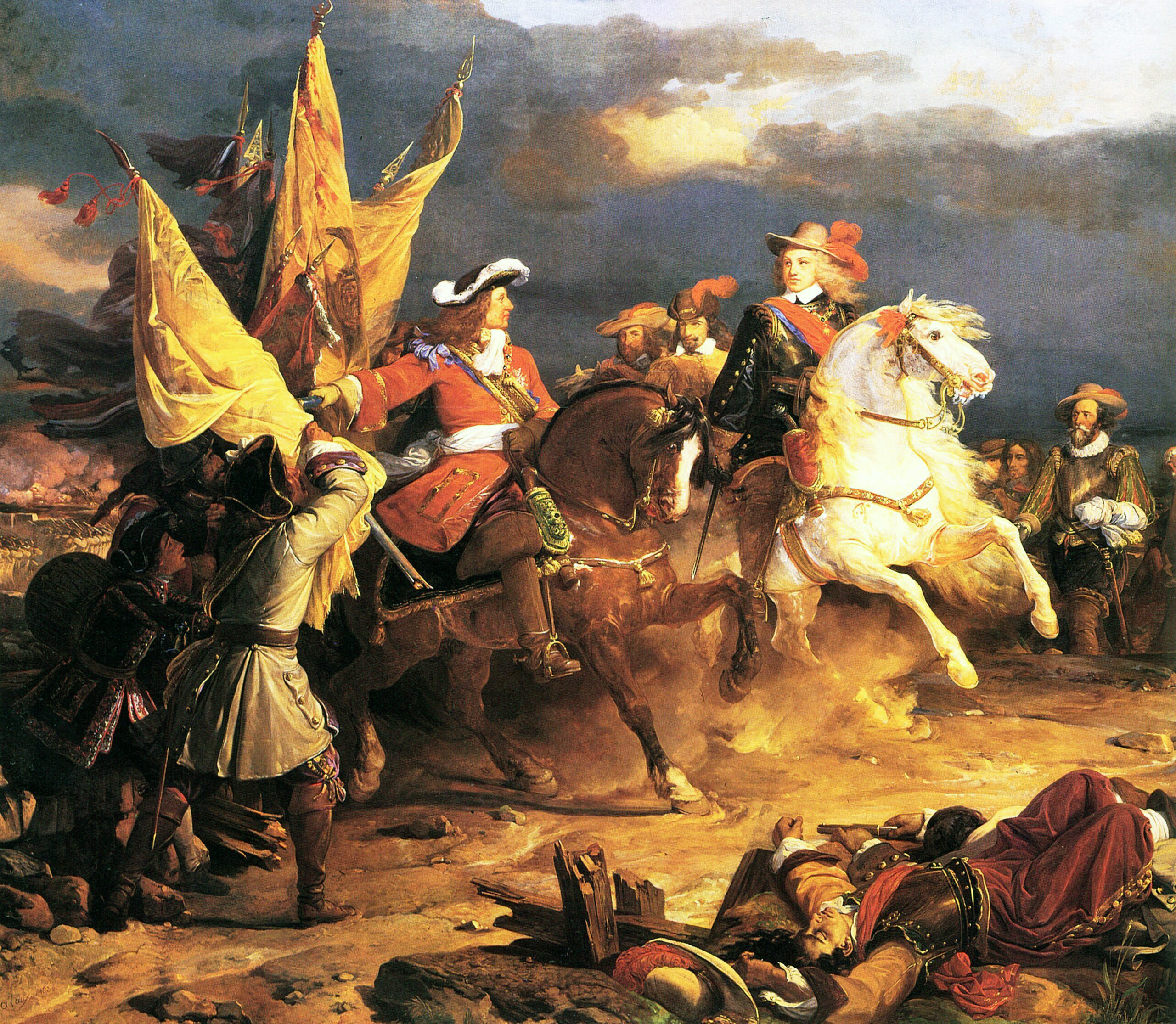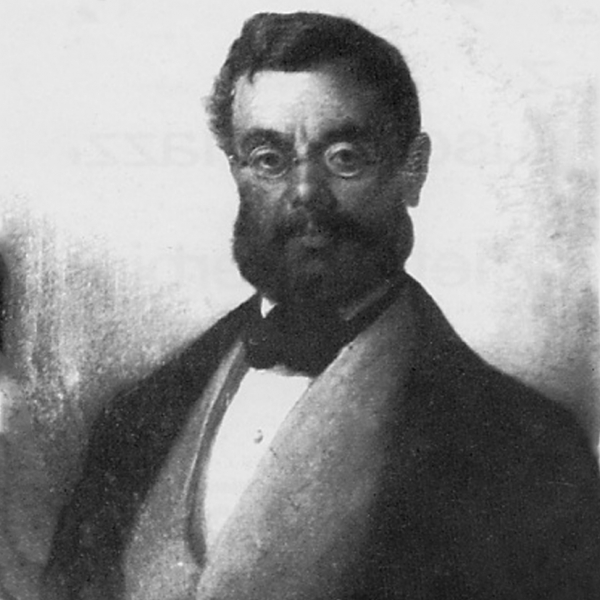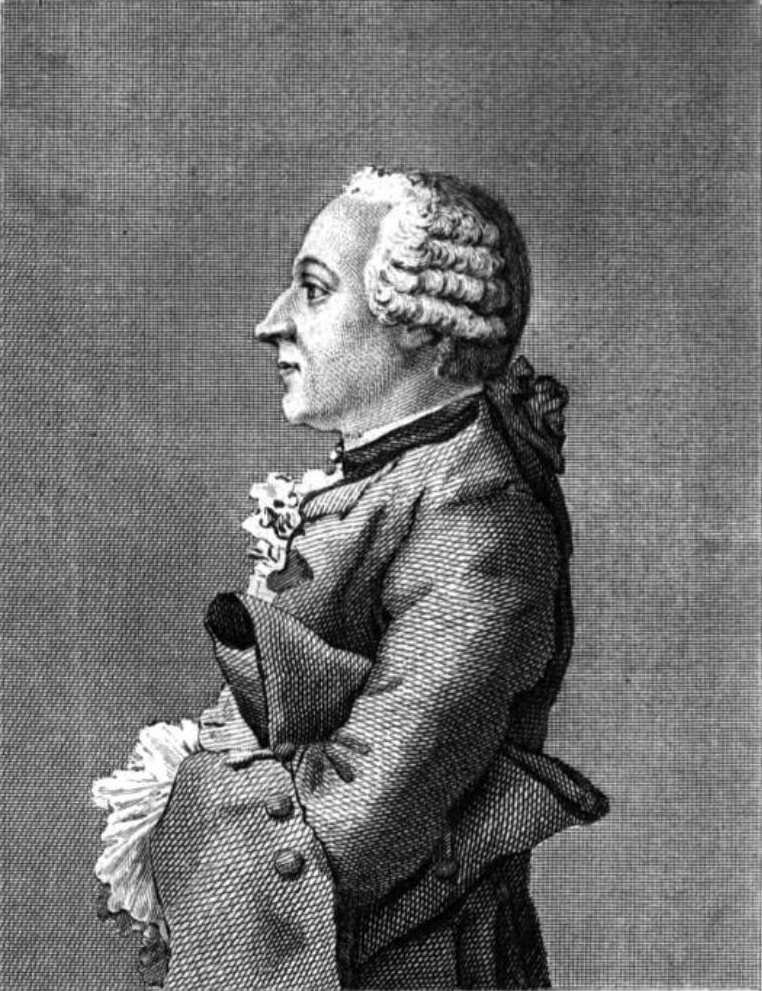|
Caffarelli (castrato)
Gaetano Majorano (12 April 1710 – 31 January 1783) was an Italian castrato and opera singer, who performed under the stage name Caffarelli. Like Farinelli, Caffarelli was a student of Nicola Porpora. Early life and training Caffarelli was born Gaetano Carmine Francesco Paolo Majorano to Vito Majorano and Anna Fornella in Bitonto. His early life is uncertain. His stage name, Caffarelli, is said to be taken from an early teacher Caffaro who taught him music in childhood, others say it was taken from a patron, Domenico Caffaro. There is evidence that he personally desired to be castrated. When aged ten, he was given the income from two vineyards owned by his grandmother, according to the legal document, so that he could study grammar and, especially, music: "to which he is said to have a great inclination, desiring to have himself castrated and become a eunuch". He became the pupil of Nicola Porpora. According to legend, Porpora kept the young Caffarelli working from one sheet ... [...More Info...] [...Related Items...] OR: [Wikipedia] [Google] [Baidu] [Amazon] |
Caffarelli
Caffarelli may be * Caffarelli (castrato), stage name of the castrato Gaetano Majorano (1710-1783)Carmela Cafarelli(1889-1979) was proprietor of Cleveland Ohio's Cafarelli Opera Company *Luis Caffarelli (born 1948), Argentine mathematician *A family of French church and military leaders, all of them brothers: **Louis-Marie-Joseph Maximilian Caffarelli du Falga (1756-1799), general ** Charles Ambroise de Caffarelli du Falga (1758-1826), canon and prefect ** Louis Marie Joseph Caffarelli (1760-1845), the first ''préfet maritime'' de Brest ** Jean-Baptiste de Caffarelli du Falga (1763-1815), bishop of Saint-Brieuc **Marie-François Auguste de Caffarelli du Falga Marie-François Auguste de Caffarelli du Falga (; October 7, 1766, Falga, Haute-Garonne, France – January 23, 1849, Leschelles, near Guise, Aisne) was a French général de division of Italian descent. Two of his brothers were also generals. ... (1766-1849), general . {{Surname Surnames Italian-language surnames ... [...More Info...] [...Related Items...] OR: [Wikipedia] [Google] [Baidu] [Amazon] |
Gluck
Christoph Willibald ( Ritter von) Gluck (; ; 2 July 1714 – 15 November 1787) was a composer of Italian and French opera in the early classical period. Born in the Upper Palatinate and raised in Bohemia, both part of the Holy Roman Empire at the time, he gained prominence at the Habsburg court in Vienna. There he brought about the practical reform of opera's dramaturgical practices for which many intellectuals had been campaigning. With a series of radical new works in the 1760s, among them '' Orfeo ed Euridice'' and '' Alceste'', he broke the stranglehold that Metastasian ''opera seria'' had enjoyed for much of the century. Gluck introduced more drama by using orchestral recitative and cutting the usually long da capo aria. His later operas have half the length of a typical baroque opera. The strong influence of French opera encouraged Gluck to move to Paris in November 1773. Fusing the traditions of Italian opera and the French (with rich chorus) into a unique synthesis ... [...More Info...] [...Related Items...] OR: [Wikipedia] [Google] [Baidu] [Amazon] |
1710 Births
In the Swedish calendar it was a common year starting on Saturday, one day ahead of the Julian and ten days behind the Gregorian calendar. Events January–March * January 1 – In Kingdom of Prussia, Prussia, Cölln is merged with Alt-Berlin by Frederick I of Prussia, Frederick I to form Berlin. * January 4 – Robert Balfour, 5th Lord Balfour of Burleigh, two days before he is due to be executed for murder, escapes from the Old Tolbooth, Edinburgh, Edinburgh Tolbooth by exchanging clothes with his sister. * February 17 – Mauritius, a History of Mauritius#Dutch colonization (1638–1710), Dutch colony since 1638, is abandoned by the Dutch. * February 28 (Swedish calendar) February 27 (Julian). March 10 (Gregorian) – Battle of Helsingborg: Fourteen thousand Danish invaders, under Jørgen Rantzau, are decisively defeated by an equally large Swedish army, under Magnus Stenbock. * March 1 – The Sacheverell riots start in London with an atta ... [...More Info...] [...Related Items...] OR: [Wikipedia] [Google] [Baidu] [Amazon] |
Castrati
A castrato (Italian; : castrati) is a male singer who underwent castration before puberty in order to retain a singing human voice, voice equivalent to that of a soprano, mezzo-soprano, or contralto. The voice can also occur in one who, due to an endocrinology, endocrinological condition, never reaches sexual maturity. Castration before puberty (or in its early stages) prevents the larynx from being transformed by the Voice change, normal physiological events of puberty. As a result, the vocal range of prepubescence (shared by both sexes) is largely retained, and the voice develops into adulthood in a unique way. Prepubescent castration for this purpose diminished greatly in the late 18th century. Methods of castration used to terminate the onset of puberty varied. Methods involved using opium to medically induce a coma, then submerging the boy into an ice or milk bath where the procedure of either twisting the testicles until they atrophied, or complete removal via surgical cu ... [...More Info...] [...Related Items...] OR: [Wikipedia] [Google] [Baidu] [Amazon] |
Cesare Sterbini
Cesare Sterbini (1784 – 19 January 1831) was an Italian writer and librettist. Possessing a deep knowledge of classical and contemporary culture, philosophy, linguistics, he was fluent in Greek, Latin, Italian, French and German. He is best known as the librettist for two operas by Gioachino Rossini: '' Torvaldo e Dorliska'' (1815) and ''The Barber of Seville'' (1816). An official in the Pontifical Administration, he also set poetry to music as an amateur. He wrote the libretto to the opera '' Il Contraccambio'' to the music of Giacomo Cordella in 1819, and the opera '' Isaura and Ricciardo'' to the music of Francesco Basili in 1820.Cesare Sterbini http://www.treccani.it/enciclopedia/cesare-sterbini_%28Dizionario-Biografico%29/ He died in Rome on 19 January 1831. Libretti *''Paolo e Virginia'', cantata, music by Vincenzo Migliorucci (1812) *'' Torvaldo e Dorliska'', dramma semiserio, music by Gioachino Rossini (1815). *''The Barber of Seville'', opera buffa, music by Gi ... [...More Info...] [...Related Items...] OR: [Wikipedia] [Google] [Baidu] [Amazon] |
The Barber Of Seville
''The Barber of Seville, or The Useless Precaution'' ( ) is an ''opera buffa'' (comic opera) in two acts composed by Gioachino Rossini with an Italian libretto by Cesare Sterbini. The libretto was based on Pierre Beaumarchais's French comedy '' The Barber of Seville'' (1775). The premiere of Rossini's opera (under the title ''Almaviva, o sia L'inutile precauzione'') took place on 20 February 1816 at the Teatro Argentina, Rome, with designs by Angelo Toselli. Rossini's ''Barber of Seville'' is considered to be one of the greatest masterpieces of comedy within music, and has been described as the opera buffa of all "opere buffe". After two centuries, it remains a popular work. Composition history Rossini's opera recounts the events of the first of the three plays by French playwright Pierre Beaumarchais that revolve around the clever and enterprising character named Figaro, the barber of the title. Mozart's opera '' The Marriage of Figaro,'' composed 30 years earlier in 178 ... [...More Info...] [...Related Items...] OR: [Wikipedia] [Google] [Baidu] [Amazon] |
Gioachino Rossini
Gioachino Antonio Rossini (29 February 1792 – 13 November 1868) was an Italian composer of the late Classical period (music), Classical and early Romantic music, Romantic eras. He gained fame for his 39 operas, although he also wrote many songs, some chamber music and piano pieces and some Church music, sacred music. He set new standards for both comic and serious opera before retiring from large-scale composition while still in his thirties, at the height of his popularity. Born in Pesaro to parents who were both musicians (his father a trumpeter, his mother a singer), Rossini began to compose by the age of twelve and was educated at music school in Bologna. His first opera was performed in Venice in 1810 when he was 18 years old. In 1815 he was engaged to write operas and manage theatres in Naples. In the period 1810–1823, he wrote 34 operas for the Italian stage that were performed in Venice, Milan, Ferrara, Naples and elsewhere; this productivity necessitated an alm ... [...More Info...] [...Related Items...] OR: [Wikipedia] [Google] [Baidu] [Amazon] |
Friedrich Melchior Grimm
Friedrich Melchior, Baron von Grimm (26 September 172319 December 1807) was a German-born French-language journalist, art critic, diplomat and contributor to the ''Encyclopédie ou Dictionnaire raisonné des sciences, des arts et des métiers''. In 1765 Grimm wrote ''Poème lyrique'', an influential article for the Encyclopédie on lyric and opera librettos. Like Christoph Willibald Gluck and Ranieri de' Calzabigi, Grimm became interested in opera reform. According to , a German literary theorist, "sooner or later a book entitled ''The Aesthetic Ideas of Grimm'' will have to be written." Early years Grimm was born at Regensburg, the son of Johann Melchior Grimm (1682–1749), a pastor, and Sibylle Margarete Grimm, (''née'' Koch) (1684–1774). He studied at the University of Leipzig, where he came under the influence of Johann Christoph Gottsched and of Johann August Ernesti, to whom he was largely indebted for his critical appreciation of classical literature. When nineteen, ... [...More Info...] [...Related Items...] OR: [Wikipedia] [Google] [Baidu] [Amazon] |
Tessitura
In music, tessitura ( , , ; ; ) is the most acceptable and comfortable vocal range for a given singer (or, less frequently, musical instrument). It is the range in which a given type of voice presents its best-sounding (or characteristic) timbre. This broad definition is often interpreted to refer specifically to the pitch range that most frequently occurs within a given part of a musical piece. Hence, in musical notation, ''tessitura'' is the ambitus, or a narrower part of it, in which that particular vocal (or less often instrumental) part lies—whether high or low, etc. However, the tessitura of a part or voice is not decided by the extremes of its range, but rather by the share of this total range which is most used. Hence, it is referred to as the "heart" of a range. For example, throughout the entirety of Wagner's '' Ring'', the music written for the tenor role of Siegfried ranges from C to C, but the tessitura is described as high because the phrases are most oft ... [...More Info...] [...Related Items...] OR: [Wikipedia] [Google] [Baidu] [Amazon] |
Mezzo-soprano
A mezzo-soprano (, ), or mezzo ( ), is a type of classical music, classical female singing human voice, voice whose vocal range lies between the soprano and the contralto voice types. The mezzo-soprano's vocal range usually extends from the A below middle C to the A two octaves above (i.e. A3–A5 in scientific pitch notation, where middle C = C4; 220–880 Hz). In the lower and upper extremes, some mezzo-sopranos may extend down to the F below middle C (F3, 175 Hz) and as high as "high C" (C6, 1047 Hz). The mezzo-soprano voice type is generally divided into the coloratura, lyric, and dramatic. History While mezzo-sopranos typically sing secondary roles in operas, notable exceptions include the title role in Georges Bizet, Bizet's ''Carmen'', Angelina (Cinderella) in Gioachino Rossini, Rossini's ''La Cenerentola'', and Rosina in Rossini's ''The Barber of Seville, Barber of Seville'' (all of which are also sung by sopranos and contraltos). Many 19th-century French- ... [...More Info...] [...Related Items...] OR: [Wikipedia] [Google] [Baidu] [Amazon] |
Naples
Naples ( ; ; ) is the Regions of Italy, regional capital of Campania and the third-largest city of Italy, after Rome and Milan, with a population of 908,082 within the city's administrative limits as of 2025, while its Metropolitan City of Naples, province-level municipality is the third most populous Metropolitan cities of Italy, metropolitan city in Italy with a population of 2,958,410 residents, and the List of urban areas in the European Union, eighth most populous in the European Union. Naples metropolitan area, Its metropolitan area stretches beyond the boundaries of the city wall for approximately . Naples also plays a key role in international diplomacy, since it is home to NATO's Allied Joint Force Command Naples and the Parliamentary Assembly of the Mediterranean. Founded by Greeks in the 1st millennium BC, first millennium BC, Naples is one of the oldest continuously inhabited urban areas in the world. In the eighth century BC, a colony known as Parthenope () was e ... [...More Info...] [...Related Items...] OR: [Wikipedia] [Google] [Baidu] [Amazon] |
Prima Donna
In opera or ''commedia dell'arte'', a prima donna (; Italian for 'first lady'; : ''prime donne'') is the leading female singer in the company, the person to whom the ''prime'' roles would be given. ''Prime donne'' often had grand off-stage personalities and were seen as demanding of their colleagues. Because of this, the term has spread in contemporary usage, from its original usage in opera to referring to anyone behaving in a demanding or temperamental fashion or having an inflated view of oneself. The prima donna in opera was normally, but not necessarily, a soprano. The corresponding term for the male lead (usually a castrato in the 17th and 18th centuries, later a tenor) is ''primo uomo''.H. Rosenthal, H. and J. Warrack, ''The Concise Oxford Dictionary of Opera'', 2nd Edition, Oxford University Press, 1979. p. 398. Opera In 19th century Italy, the leading woman in an opera or ''commedia dell'arte'' company was known as the prima donna, literally the "first lady". This ... [...More Info...] [...Related Items...] OR: [Wikipedia] [Google] [Baidu] [Amazon] |






